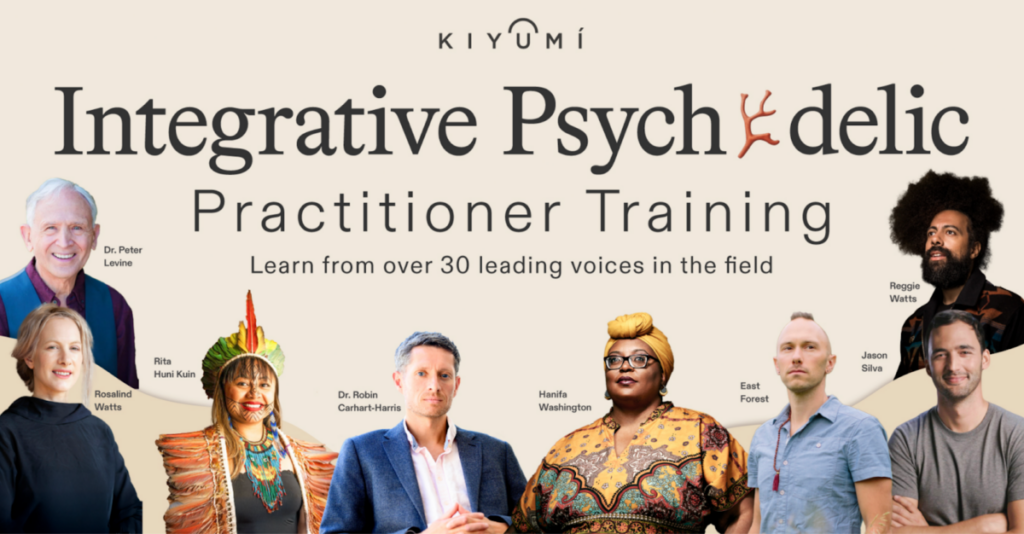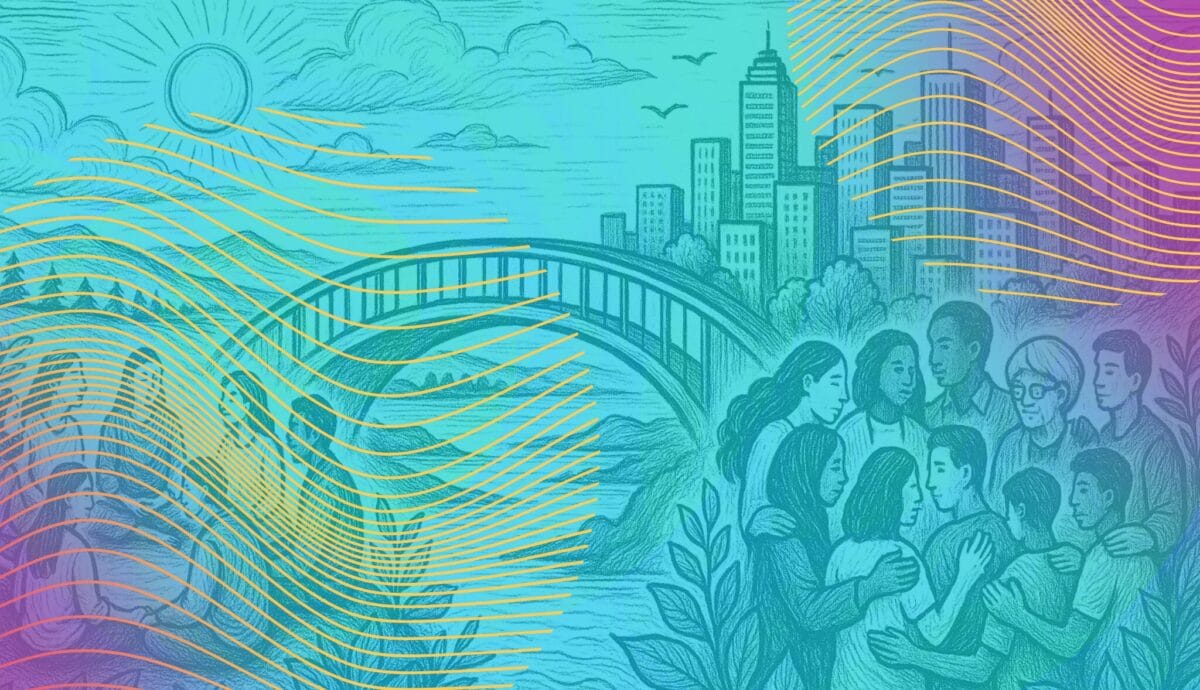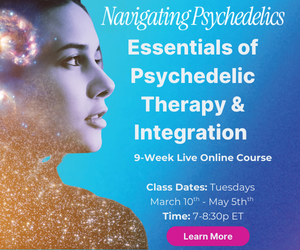In 2025, the psychedelic landscape is rich with possibility, and yet often fragmented. Psychedelic gatherings can feel like isolated islands, each with its own language, lineage, and loyalties. While there is beauty in these distinct communities, there is also a risk of remaining in silos, missing the deeper potential of psychedelics as a force for collective connection.
The world around us is marked by displacement, migration, and widening social fractures. Many carry the grief of war, environmental loss, and uncertain futures. These realities do not dissolve when we step into ceremonial space; they live in the bodies, stories, and ancestral threads of those who gather.
Psychedelics, at their best, offer a lens to see our shared humanity more clearly. They can dissolve the separations between us, reminding us of the deep interdependence that sustains life. In this way, they become not only tools for personal healing, but for building bridges: across cultures, histories, and the lines that, though often unseen, are reinforced by systems that shape how lives are valued and how communities are divided.
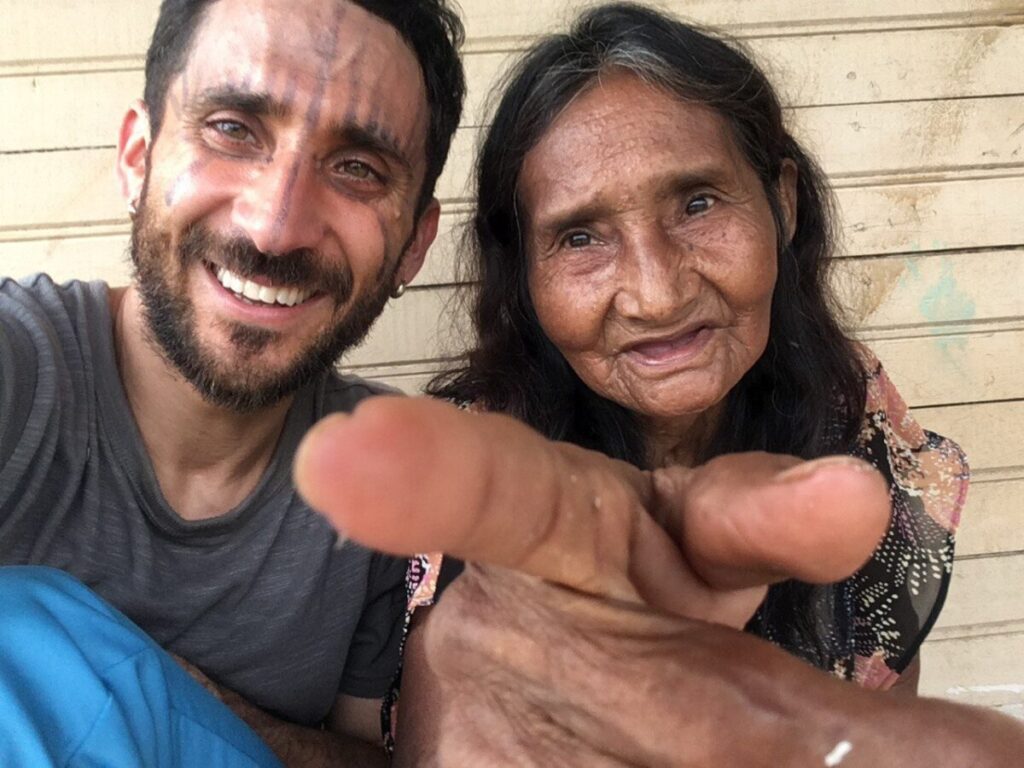
To honour this potential, we must also acknowledge the roots of these practices. Many psychedelic traditions arise from Indigenous communities whose relationships with these medicines are embedded in land, language, and ceremony. Reciprocity is a living relationship; it takes form in practical commitments, such as supporting the cultural and ecological well-being of the communities that have carried these medicines forward, sourcing materials in ways that sustain rather than deplete, and ensuring that the benefits of this work extend beyond those who can most easily access it. Connection grows when we create spaces where differences are not erased but respected, and where participants can meet each other’s stories with presence and care.
“I feel like it’s a very interesting time in life, you know, the world to do this kind of work, and seeing so much violence so many wars, and the really terrible things that humans are doing to one another, and then being here and seeing the potential of how much tenderness and care and love and healing people can allow and bring one another, I think it’s a privilege and an honour to be able to witness people coming together in order to find the best way to heal, to grow.” – Amit Zilberberg, Facilitator and mentor at Kiyumi
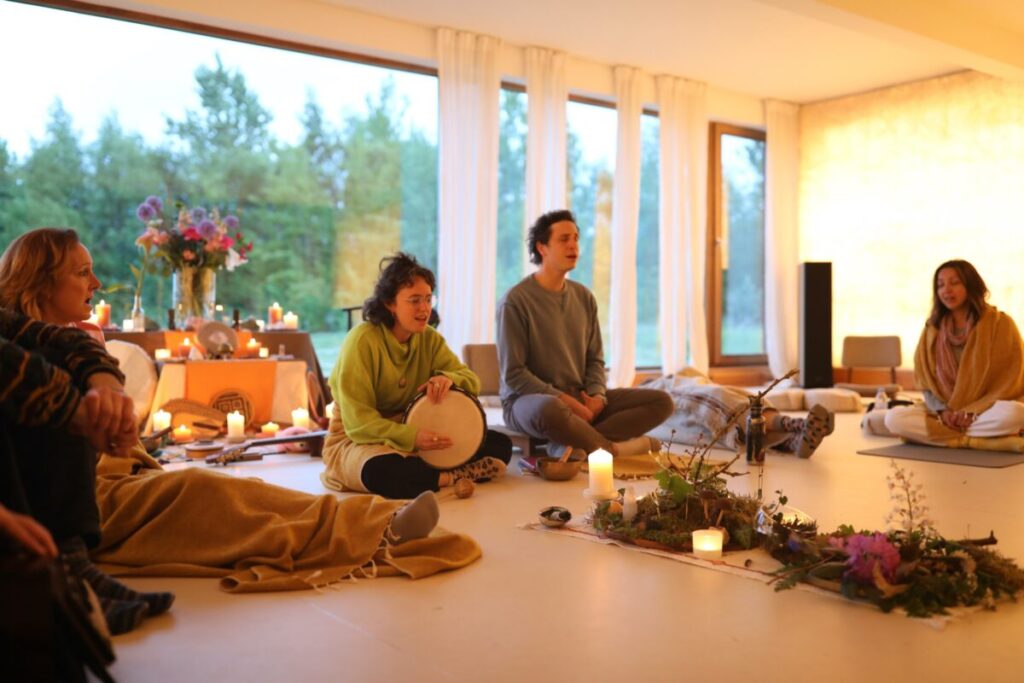
A regenerative psychedelic culture calls for practices that heal not only individuals, but also the relationships between communities and between humanity and the living world. This is the work of understanding that personal healing is inseparable from the freedom and well-being of all; it invites us to envision a future where the psychedelic renaissance is not a passing trend, but part of a deeper cultural shift towards care, justice, accountability, and sustainability.
As a queer-led organisation, Kiyumi invites facilitators, therapists, community organisers, and those seeking to deepen their practice or begin their path to develop their craft with a strong foundation in somatic practice, cultural awareness, and ethical spaceholding. Our Integrative Psychedelic Practitioner Training emerges from these values – it is a seven-month journey, paired with a six-day in-person training retreat in the Netherlands, designed to prepare practitioners to meet the complexity of our times with grounded skill and presence.
Applications are open for our October 2025 cohort
